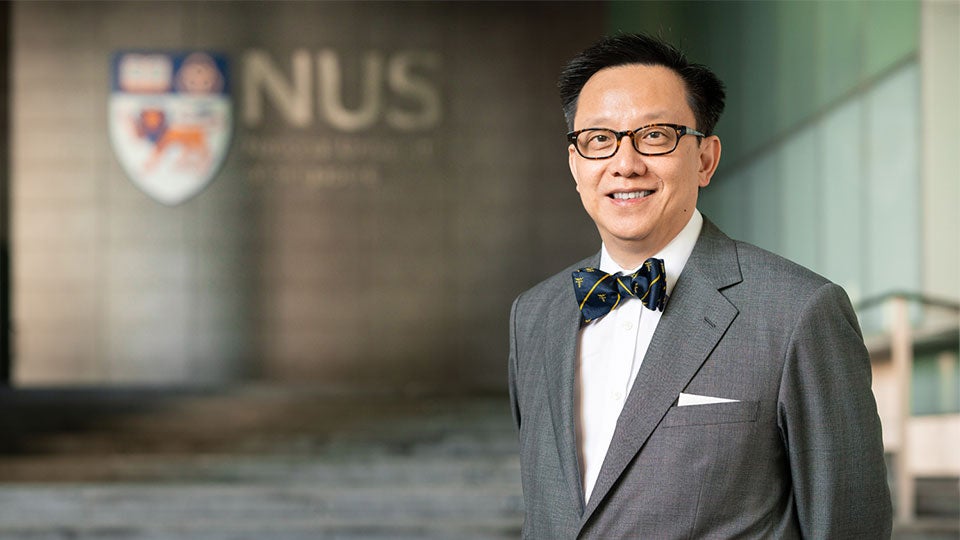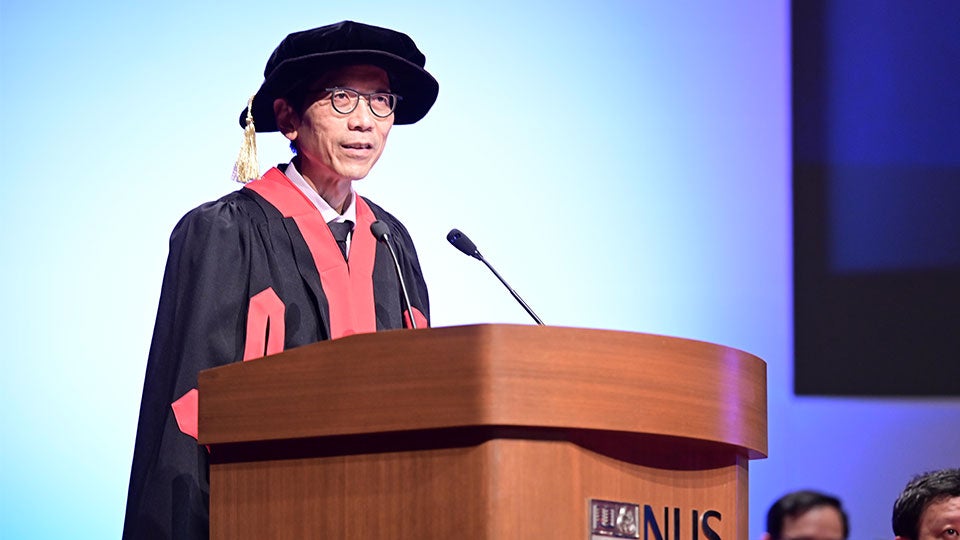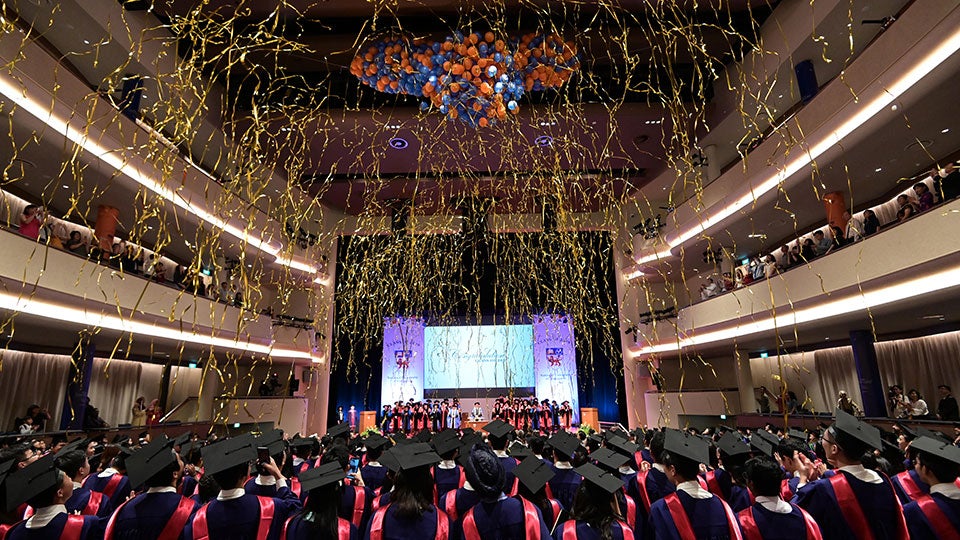Nurturing compassionate, competent and innovative doctors of tomorrow
Published: 16 Jul 2019

With new challenges facing Singapore’s healthcare sector as the society ages, there is a need to look beyond grades when it comes to nurturing and training doctors for the future.
“Selecting students for medical school should not be just about grades, but about whether they have the right skills and values to be good doctors”, said Professor Chong Yap Seng, Dean of NUS Yong Loo Lin School of Medicine.
In an exclusive interview with The Straits Times, Prof Chong explains how NUS Medicine is embracing itself for the challenges of the future – and the key lies in nurturing compassionate, competent and innovative doctors from different backgrounds. He also assures that “no student will be denied the opportunity to study medicine at NUS because he is unable to pay the tuition fees.”

The Dean also shared that one in five NUS medical students receives financial help in the form of bursaries and scholarships from the school to cover tuition fees. Students who need more aid are also supported in their living expenses.
“We don’t look at whether a student is able to pay the fees. Just whether he or she will make a good doctor.”
Following changes in the way applicants are evaluated, the NUS medical school is now seeing a greater diversity in our intake, with medical students coming from more diverse academic backgrounds.
The School is studying the possibility of allowing students to combine their medical studies with other related courses. This could open up options for our students to combine the practices of medicine with other fields, such as health economics and administration or inventing new medical devices – all of which would help develop more holistic patient care and nurture our students into better doctors when they enter the medical profession.
Addressing the graduates of NUS Medicine at the Commencement ceremony on 14 July, Professor Tan Chorh Chuan, Chief Health Scientist, Ministry of Health, reminded the newly-minted doctors of the “precious gift” of skills and knowledge gained in their five years of medical school.
“They not only allow you to diagnose and heal, but to serve patients well, be a source of comfort, and to have a positive impact on communities, no matter where they are.”

He also urged young doctors to “remain effective” by continuously learning and expanding their knowledge, especially as they enter medical practice “at a time of great change and opportunity”.
Such views were echoed by NUS Medicine graduate and Class of 2019 valedictorian, Arturo Neo. In his speech, Arturo shares how his experiences during medical school and his housemanship taught him to “fight for our patients”.
Serving the underprivileged has taught Arturo to empathise with patients: “We are often caught up with day-to-day admin tasks and we may not have time to stop, to think about what else we can do to make the lives of our patients better, unless we make an active effort to do so.”
Arturo also shared that coming from a family which struggled financially when he was younger, helped him understand the “constraints and limitations” that some people have.
The Commencement ceremonies for NUS Medicine graduands was held at the University Cultural Centre. Over 1000 Medicine and Nursing undergraduates and postgraduates received their degrees.
News Coverage
- “NUS medical school sees greater diversity in intake”, The Straits Times, 15 July 2019, Top of the News, pA1
- “Fight for your patients, says valedictorian to medical graduates of NUS”, The Straits Times, 15 July 2019, Top of the News, pA4
- “One in five NUS medical students gets financial help”, The Straits Times, 15 July 2019, Top of the News, pA4
- “Ex-combat medic lands spot in NUS medicine on third try”, The Straits Times, 15 July 2019, Top of the News, pA4
- “A message for Singapore doctors on skills, trust and two delicious meals of lamb”, TODAY, 16 July 2019



